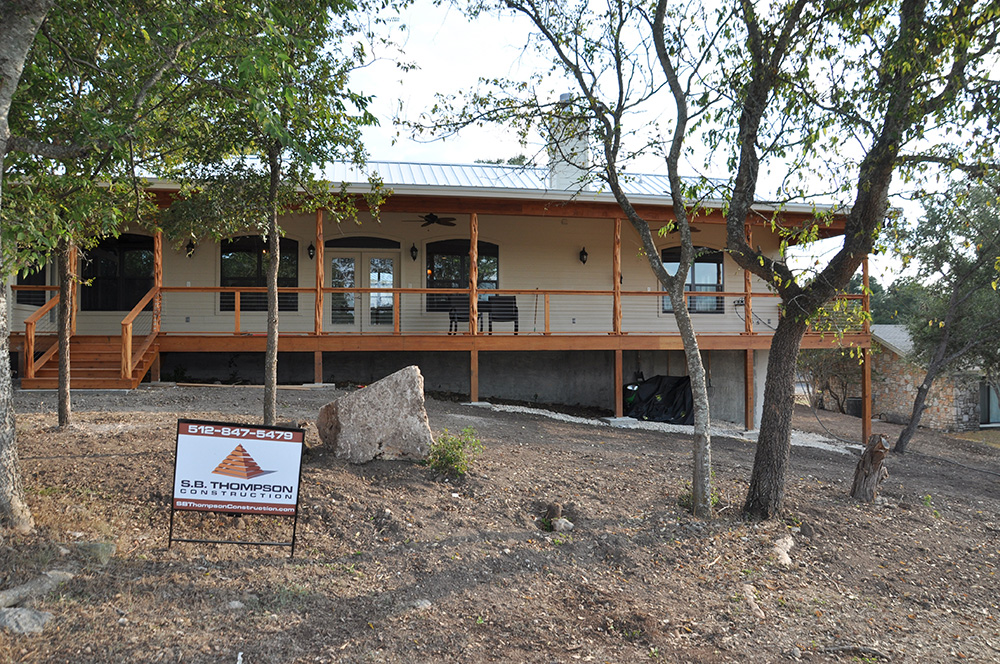Your checklist for building a custom home in Central Texas
Building a custom home in Texas is an exciting journey that involves multiple steps and phases, from planning and permits to construction and final inspections. Once you’ve determined whether you’re constructing a custom home with a home builder or contractor, or working with a developer, understanding the step-by-step process can help you navigate the complexities of homebuilding in the Lone Star State.
Step 1: Planning and Budgeting
Before breaking ground, the first step in building a custom home is to determine your budget and establish a clear vision and design for your home. This includes:
- Setting a realistic budget that accounts for land, construction, materials, labor, permits, and contingencies.
- Selecting a location and purchasing land, ensuring it complies with zoning regulations.
- Deciding on the home’s design, layout, and features with an architect or home designer.
Step 2: Securing Financing
If you’re not paying for the construction of your custom home project out-of-pocket, you’ll need to secure financing. Common options include:
- Construction loans, which cover building costs and convert into a traditional mortgage once the home is completed.
- Builder financing, offered by some home builders if you purchase within a planned community.
Step 3: Obtaining Permits and Approvals
Before construction begins on your custom home, you must secure the necessary permits, which may vary by city and county. This step typically involves:
- Submitting architectural plans to the local building department.
- Obtaining building permits for structural, electrical, plumbing, and mechanical work.
- Ensuring compliance with Texas building codes and HOA (if applicable).
Step 4: Site Preparation and Foundation
Once permits are secured, the construction process starts with site preparation, which includes:
- Clearing the land and grading the site to ensure proper drainage.
- Installing utilities such as water, sewer, and electricity.
- Pouring the foundation, whether slab-on-grade (common in Texas), crawl space, or basement.
Step 5: Framing and Structural Work
After the foundation is set, the skeleton of the home takes shape:
- Framing the walls, floors, and roof.
- Installing windows and exterior doors.
- Completing roofing to protect the interior from the elements.
Step 6: Plumbing, Electrical, and HVAC Installation
With the structure in place, contractors will begin roughing in essential systems:
- Running electrical wiring and installing breaker panels.
- Installing plumbing pipes and water supply systems.
- Setting up HVAC (heating, ventilation, and air conditioning) systems.
Step 7: Insulation and Drywall
This step focuses on energy efficiency and interior wall finishing:
- Installing insulation to regulate temperature and reduce energy costs.
- Hanging drywall and applying joint compound to create smooth surfaces.
Step 8: Interior and Exterior Finishes
Once the walls are complete, interior and exterior design elements come together:
- Applying paint, installing flooring, and adding trim and molding.
- Installing cabinets, countertops, and fixtures.
- Completing exterior siding, driveways, and landscaping.
Step 9: Final Inspections and Walkthrough
Before moving in, your custom built home must pass final inspections:
- The city or county inspectors verify that electrical, plumbing, and structural components meet code requirements.
- A final walkthrough with your builder ensures that any necessary touch-ups or corrections are addressed.
Step 10: Move-In and Enjoy!
After approvals and final payments, you’ll receive the certificate of occupancy, allowing you to move in. At this point, you can:
- Set up utilities and homeowner’s insurance.
- Furnish and personalize your space.
- Enjoy your new Texas home!
Final Thoughts
Building a custom home in Texas requires careful planning, coordination, and patience. Knowing the steps in the process, you can ensure a smooth construction experience and build a home that meets your needs for years to come. Whether you’re working with a builder or taking on a custom home project, having a clear understanding of each phase will help make your homebuilding journey a success!
